|
| |
Given the
fact it's now the longest running show in Broadway history,
it would seem
I'm among the last people on Earth to have known next to
nothing about The Phantom of the Opera prior to
watching this film. And, of course, if you've been
keeping up with my other reviews on this page for the past
few years, you may already be aware of a comment I made
regarding Moulin Rouge -- one which, to be honest, is
quite characteristic of my usual opinion of the musical
theater genre. In it I said, "I always find the unnatural vehicle of almost solely
musical speech a bit off-putting", and I will without hesitation tell you
that for at least the first half-hour or so of this (to me
new) example of the form, it proved by no means an
exception. In fact, I was so thoroughly frustrated
with the "unreal seriousness" of the whole thing
at the point wherein the heroine is shown kneeling to light
a candle in remembrance of her late father -- her billowing
hoop skirt so meticulously arranged without the slightest
wrinkle of disarray, every perfectly coiffed tress intact as
it falls against her powdered porcelain skin...despite the
fact this all follows a performance one can't help realizing
would most certainly have at least worked up a bead of sweat
or caused one or two of those angelic strands of ringleted
gossamer to blow astray -- that I have to fess up to the
fact my hand started wandering toward the remote beside me
in a plea to end once and for all this groan-inspiring
assault on my reason. However, always hopeful things
might improve with perseverance, I managed to successfully
contain that urge, and soldiered on. And, once the
title character showed up to balance out the hard to swallow
milktoast Raoul we're expected to believe is Christine's
once childhood crush (and now potentially great
love...?!&*^&*?) -- indeed things began to (quite
literally, as it often happened throughout the rest of the
show) look up.
I've read reviews criticizing the
production for its casting of a far from grotesque figure to
portray what was apparently in the original novel by Gaston
Leroux a hideous and loathsome creature. Given the
simplistic plot and dramatic appeal of the modern version,
however, relies primarily on a love triangle between the
Phantom, Christine and Raoul, it would hardly seem plausible
that this lovely, talented young woman might be romantically
drawn to something with bulging eye sockets in excess of 60
years age. In light of the aforementioned assessment
of Raoul's own questionable appeal, however, it becomes
pretty easy to believe that a patron of the arts with
excellent taste and a fair bit of talent in his own right --
albeit with a bit of (disguisable) facial deformity --
could prove a worthy contender in wooing the lass. And, so
at last, we have a film.
And, of course, if one adds murder
to the mix, the ever looming sense of tragedy lurking just
around the bend, and the genuine uncertainty as to where it
all may lead, the overall spectacle becomes a rather
engrossing one. What's more the skillful use of
lighting effects, color blooming from black and white
transitions, and sets that are truly breathtaking in their
beauty and atmospheric qualities as metaphor, one can't help
but marvel at the visual as well as emotional artistry of
the production as a whole.
Be that as it may, I suppose in the
end it all comes down to the fact I'm eternally a sucker for
hopeless romanticism, whatever the contrivances used to tug
at those heartstrings. And, in the case of Phantom
of the Opera, the primary reason I'm ultimately
championing it here is the frame tale in which its set...a
tale which occupies only a tiny fraction of the film's more
than two-hour running time, but which creates a snow and
dust-filled world of shadows that contain the brightest
colors of the entire "show". And, indeed, in
a fine example of saving the best for last, it is the final
silent image we are left with that speaks the loudest.
For, although the "words" of that image are
undeniably bittersweet, yet they also serve as a most
eloquent reminder that "silence is the perfectest
herald of joy"...and that the beauty of enduring love
remains endlessly -- and timelessly -- appealing.
|
|
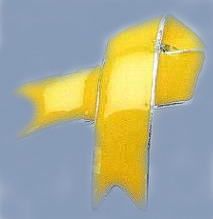
|
|
NEW!!!
State of
Grace (1990)
Before getting to the actual "review" of this particular film,
I have to explain briefly a couple of related points. First, it
may seem extremely odd that I'm only now discovering a film that's been
around for a decade and a half -- one, incidentally, I'd first heard of
several years back from an acting teacher/friend (from Brooklyn) who
referenced it upon learning of a job I'd landed at the time, which
required rehearsals in Queens (and if you haven't yet seen the film to
catch that reference, yes, that means Queens is a place of which he was
less than fond). Second, I have to myself reference a more recent
film, (covered a bit further down this page), Ash Wednesday.
At the time I first ran across this later work, I found it curious
that Ed Burns had departed so completely from his usual fare of
contemporary relationship explorations to return to the 1980's and New
York City's Irish mob for this particular effort -- and wondered as I
watched what might have inspired such a drastic change.
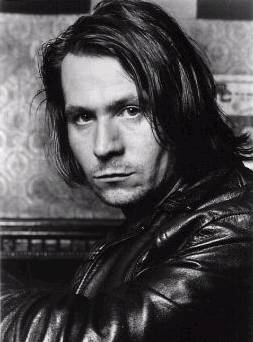 Not long after the ending credits had rolled on State of Grace,
however, I realized it was very possible Burns had been as taken as I by
what transpired in the 2 hours leading up to them. And, it's
therefore likewise possible his own tale of two brothers in Hell's
Kitchen might have sprung from the words "what if" regarding
certain aspects of this one.
Not long after the ending credits had rolled on State of Grace,
however, I realized it was very possible Burns had been as taken as I by
what transpired in the 2 hours leading up to them. And, it's
therefore likewise possible his own tale of two brothers in Hell's
Kitchen might have sprung from the words "what if" regarding
certain aspects of this one.
Be that as it may, it certainly seems likely
Burns has at some point seen this film...which is more than I can say
for the "professional" critics whose reviews I looked into
after seeing it myself -- the most glaringly inaccurate of which labeled
one of its main characters "psychotic". Interestingly,
that character -- Jackie Flannery (impeccably played by Gary Oldman) --
while indeed quite possible "crazy" (as he himself professes)
-- is the one whose actions are almost invariably followed by the
assumedly sane "lead"Terry Noonan (played by the likewise
excellent Sean Penn). Interesting as well is the fact that a major
component of psychosis is said to be a lack of real attachment to other
people, along with which goes an inability to relate in any real way to
their feelings, feel compassion for them in return, etc. Yet, it
is arguably the fact this particular character feels too much that
proves his greatest "weakness", and indeed which makes him
dangerous -- though it's likewise arguable it makes him the most
dangerous to himself
I suppose one can follow the logic of the
critics, however, if one merely takes at face value all events as they
unfold, and if one merely dismisses Jack as one of the stereotypical,
murderous miscreants that populate so many "run-of-the-mill"
crime dramas. Of course, such "logic" completely ignores
the myriad of scenes in which the character appears, the bulk of which
are constructed to portray an irrepressible individual whose generosity,
caring and steadfast friendship quickly thwart the "best laid
plans" that have suddenly brought Terry home.
Make no mistake, however; Jackie Flannery is no
saint. He himself states at one point that, as a part of his
"job", he "hurts people" (another interesting irony
to which, however, is that throughout the first half of the film he
invariably approaches physical combat in a strictly hand to hand manner;
it is the supposedly more "controlled" Terry who repeatedly
pulls a gun.) After all, Jackie is a product of a culture steeped
in blood -- both shared and shed -- and he clearly accepts the violence
and death that are a part of his survival. Yet he also clearly retains
an uncharacteristic level of respect, compassion, and almost childlike
joy in living for what one conceives of as a "thug". As
the saying goes, "Love covers a multitude of sins", and it
remains an undeniable fact of Jack's character that this sinner is above
all else a creature filled with love.
What's more, a major driving force behind this
love seems an astonishing level of hope -- a hope so herculean in its
strength, it's also quite possibly the single greatest element
separating State of Grace from the "run-of-the-mill"
crime dramas noted above. And, it's both the characterization and
importance of both Jackie's love and hope that the aforementioned
professional critics have failed to understand. Roger Ebert, for
example, so completely missed the point that he described what is
arguably the key scene depicting the fiercely determined nature of these
qualities with the words, "[Jackie's] idea of making arson into fun
is to pour the gasoline between himself and the door, and then see if he
can run through it without killing himself." Not exactly.
Rather, when Jack breaks Terry in on his first
"assignment" (working for Jackie's older brother Frank, the
Irish mob's current leader) he likewise attempts to share with him the
belief there are possibilities beyond their life of crime -- and offers
this belief as an invitation, patiently awaiting Terry's assent before
creating a mock "hell" of very real flames, from which he and
Terry escape via a fiery "hundred yard dash". And, in so
doing, it seems very likely that Jack's mission is not merely to create
"fun", but much more, to offer Terry the seeds of his own
faith in one day escaping -- together -- the greater Hell that is at
present their real life in Hell's Kitchen.
Again, in fairness to the critics, though (as
the above scene indicates), so many of the film's most meaningful themes
are presented metaphorically -- no one is hit over the head with
directly idealogical dialogue by any means....which is a part of what
makes this film deceptive in its lasting appeal. One is simply on
the edge of one's seat as tensions mount and actions build, and it's
only as bits and pieces settle into one's consciousness over time that
the enormity of what has been experienced is permitted to seep in.
As a result, it's debatable whether the entirety of the arson scene's
meaning is clear even to Terry at the time its taking place, as the
reasons for and implications of his return to the neighborhood after a
twelve year absence (which are not revealed until much later)
necessarily provide a somewhat different perspective -- at first.
As time goes on, however, the lasting truth that seeps into Terry's
consciousness is one described in the Proverb, "there is a friend
who sticks closer than a brother". And, it's the bond of
Terry's and Jack's friendship that ultimately defines Terry's
character...eventually leading him to conclude there may be no such
thing as the state of grace he'd once conceived, and lending him the
courage to seek out his own form of redemption.
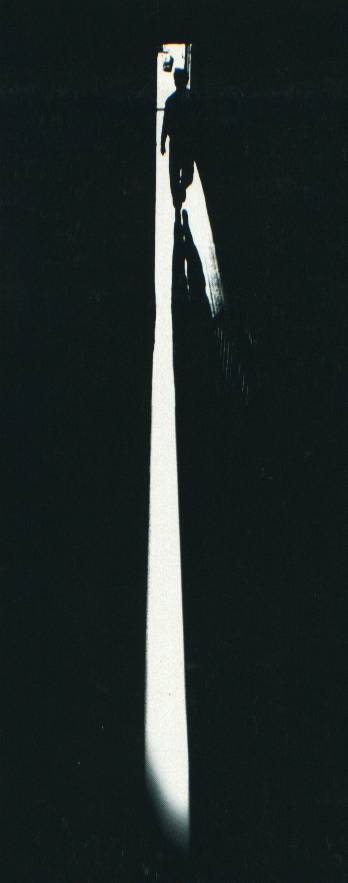
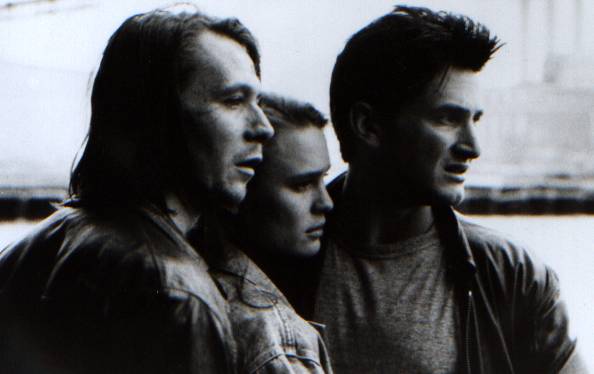
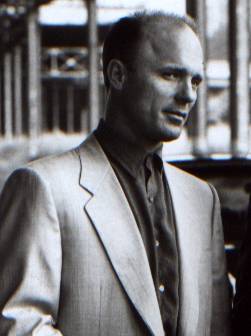
What's more, it's actions
stemming from the love of this "brotherhood" that lead Terry
Among the most fascinating film characters I've
ever encountered, Jackie is a product of a culture steeped in blood --
both shared and shed -- which has arguably contributed to the hardening
of many a Hell's Kitchen soul -- including Jackie's older brother (and
as head of the Irish mob, also Jackie's boss), Frank. Oddly, though, in
Jackie's case, it becomes increasingly apparent this has merely limited
his options rather than truly shaped his character. For, while he
clearly accepts the violence and death that are a part of his survival,
yet he retains an uncharacteristic level of respect, compassion, and
almost childlike joy in living for what one conceives of as a
"thug".
For example, one of the scenes that most
certainly contributes to that aforementioned misconception of psychosis is
the manner in which Jackie chooses to exit the scene of an arson (he and
Terry are committing) -- and while I won't spoil the surprise of that
here,
Before getting to the actual
"review" of this particular film, I have to explain briefly a
couple of related points. First, it may seem extremely odd that
I'm only now discovering a film that's been around for a decade and a
half -- one, incidentally, I'd first heard of several years back from an
acting teacher/friend (from Brooklyn) who referenced it upon learning of
a job I'd landed at the time, which required rehearsals in Queens (and
if you haven't yet seen the film to catch that reference, yes, that
means Queens is a place of which he was less than fond). Second, I
have to myself reference a more recent film, (covered a bit further down
this page), Ash Wednesday. At the time I first ran
across this later work, I found it curious that Ed Burns had departed so
completely from his usual fare of contemporary relationship explorations
to return to the 1980's and New York City's Irish mob for this
particular effort -- and wondered as I watched what might have inspired
such a drastic change.
 Not long after the ending credits had rolled on State of Grace,
however, I realized it was very possible Burns had been as taken as I by
what transpired in the 134 minutes leading up to them. And, it's
therefore likewise possible his own tale of two brothers in Hell's
Kitchen might have sprung from the words "what if" regarding
certain aspects of this one.
Not long after the ending credits had rolled on State of Grace,
however, I realized it was very possible Burns had been as taken as I by
what transpired in the 134 minutes leading up to them. And, it's
therefore likewise possible his own tale of two brothers in Hell's
Kitchen might have sprung from the words "what if" regarding
certain aspects of this one.
Be that as it may, it certainly seems likely
Burns has at some point seen this film...which is more than I can say
for the "professional" critics whose reviews I looked into
after seeing it myself -- the most glaringly inaccurate of which labeled
one of its main characters "psychotic". Interestingly,
that character -- Jack Flannery (impeccably played by Gary Oldman) --
while indeed quite possibly "crazy" (as he himself professes)
-- is the one whose actions are almost invariably followed by the
assumedly "sane" Terry Noonan (played by the likewise
excellent Sean Penn).
I suppose one can follow the logic of the
critics, however, if one merely takes at face value all events as they
unfold, and if one merely dismisses Jack as one of the stereotypical,
murderous miscreants that populate so many "run-of-the-mill"
crime dramas. Of course, such "logic" completely ignores
the first half-dozen or so scenes in which the character appears, all of
which are constructed to portray an irrepressible individual whose
respect, caring and steadfast friendship quickly thwart the "best
laid plans" that have suddenly brought Terry home.
Make no mistake, however; Jack Flannery is no
saint. He himself states at one point that, as a part of his
"job", he "hurts people" (another interesting irony
to which, however, is that throughout the first half of the film he
invariably approaches physical combat in a strictly hand to hand manner;
it is the supposedly more "controlled" Terry who repeatedly
pulls a gun.) But, as the saying goes, "Love covers a
multitude of sins", and it remains an undeniable fact of Jack's
character that this sinner is above all else a creature filled with
love.
What's more, a major driving force behind this
love is an astonishing level of hope -- a hope so herculean in its
strength, it's also quite possibly the single greatest element
separating State of Grace from the "run-of-the-mill"
crime dramas noted above. And, it's both the characterization and
importance of this hope that the aforementioned professional critics
have failed to understand. Roger Ebert, for example, so completely
missed the point that he described what is arguably the key scene
depicting the fiercely determined nature of this quality with the words,
"[Jack's] idea of making arson into fun is to pour the gasoline
between himself and the door, and then see if he can run through it
without killing himself." Not exactly.
Rather, when Jack breaks Terry in on his first
"assignment" (working for Jack's older brother Frank, the
Irish mob's current leader) he likewise attempts to share with him the
belief there are possibilities beyond their life of crime -- a part of
which (as has already been established) is indeed death. By
himself creating a mock "hell" of very real flames, from which
he and Terry escape via a fiery "hundred yard dash", Jack's
mission is not merely to create "fun", but much more, to offer
Terry the seeds of his own faith in one day escaping the greater Hell
that is at present their real life in Hell's Kitchen (...and proving in
the process he's by no means a person to seek the "easy way
out" of a difficult situation).
Again, in fairness to the critics, though (as
the above scene indicates), so many of the film's most meaningful themes
are presented metaphorically -- no one is hit over the head with
directly idealogical dialogue by any means....which is a part of what
makes this film deceptive in its lasting appeal. One is simply on
the edge of one's seat as tensions mount and actions build, and it's
only as bits and pieces settle into one's consciousness over time that
the enormity of what has been experienced is permitted to seep in.
As a result, it's debatable whether the entirety of the arson scene's
meaning is clear even to Terry at the time it's taking place, as the
reasons for and implications of his return to the neighborhood (which
are not revealed until much later) necessarily provide a somewhat
different perspective -- at first. As time goes on, however, the
lasting truth that seeps into Terry's consciousness is one described in
the Proverb, "there is a friend who sticks closer than a
brother". And, it's the bond of Terry's and Jack's friendship
that ultimately defines Terry's character...eventually leading him to
conclude there may be no such thing as the state of grace he'd once
conceived, and lending him the courage to seek out his own form of
redemption.
Of course, what's interesting
about that misnomer is the fact that a major component of this condition
is a lack of real attachment to other people, along with which goes an
inability to relate in any real way to their feelings, feel compassion
for them in return, etc. Yet, it is arguably the fact this
particular character feels too much that proves his greatest
"weakness" -- and at the same time serves as a catalyst for
bringing out those who love him's greatest strengths.
To back up a bit, however, I should probably
first explain that the film centers around Terry Noonan (Sean Penn), who
has returned to his old haunt of Hell's Kitchen after a twelve year
absence. And, while much has changed during that time, it quickly
becomes apparent that still more has stayed the same -- including the
deep and lasting bond between Terry and his best friend, Jackie Flannery
(Gary Oldman), to whom Terry turns for assistance in finding
"work". Of course, since the mob in this case is a
true "family" affair, it turns out to be Jackie's older
brother, Frank, who is
Be that as it may, the character in question (played to heartrending
perfection by Gary Oldman) is a product of his environment.
Steeped in a culture of blood -- both shared and shed --
http://keywestindiefest.com/indibio2K5.html#screen
View
Sympathy For The Devil Clip (Navy Pier Grand Ballroom, 12-31-04)
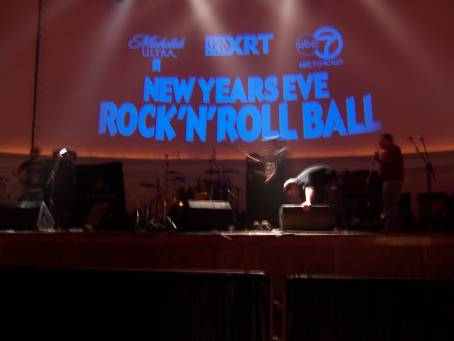
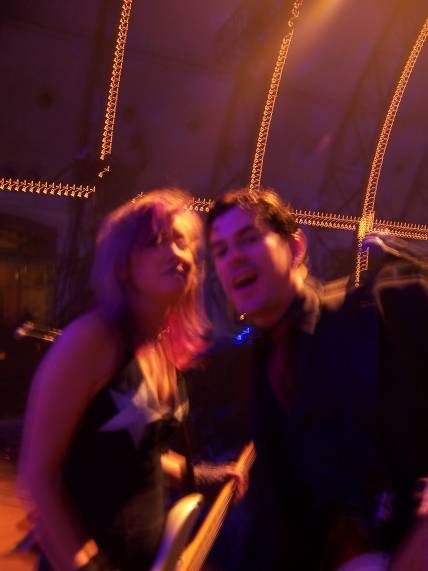
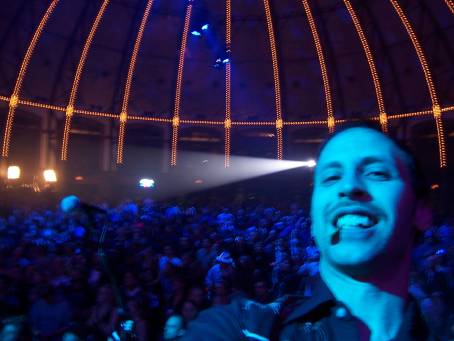
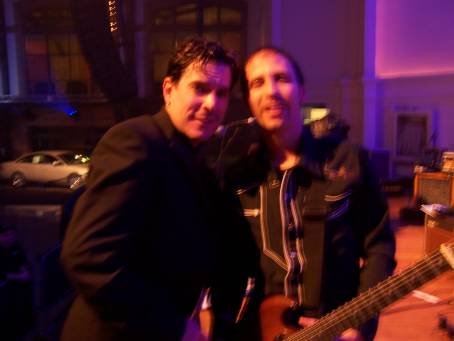
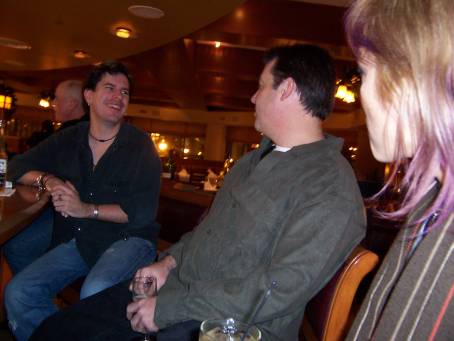
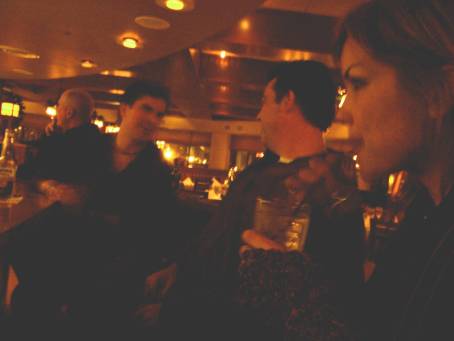
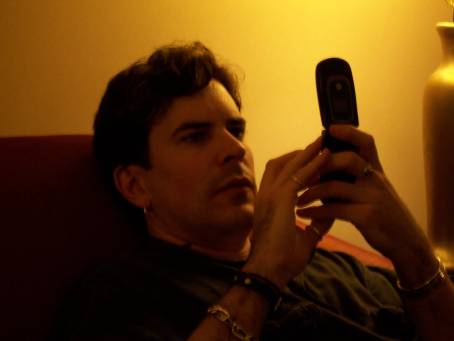
asfunction:nt_connect,0
(making theaters seem more like "home" to me)

9th Mil
had a another stroke of mad inspiration!!!
And, if you're a Michael
McDermott supporter,
you'll definitely want to CLICK
HERE to learn
how you can be a part of this
particular insanity!!!
But...time is of the
essence so be sure to check it out
NOW!!! (P.S. If you
happen to be Michael
himself...don't even THINK of
clicking above...
you'll find out in good time
what the madness is all
about -- provided everyone
else is likewise up for the
surprise.
If not, well then, there's nothing to know anyway!!!)
View
Guestbook - - Sign
Guestbook
 |
If I were a work of art, I would be M. C. Escher's Lizards.
I am a bizarre juxtaposition of the real and the unreal.
Based in the realm of mathematics, my two-dimensional appearance
belies a complex and free-willed behaviour which both delights
and confuses people.
Which work of art would you be? The
Art Test
|
http://www.dcn.com/contest/band_page.jsp?artist_id=7059#
Click
Here to View New Board and/or Post a Message
Test your MM song knowledge on
this link, it's kind of fun...
Michael
McDermott Song Game
http://pauperssky.com/curtain/
(Behind The Curtain Newsletters 2001-2002)
http://www.pauperssky.com/reviews/middle_01.html
(McD - The Critics Corner)
Michael, Lance and Angelo. Due to
technical difficulties with his guitar and sound, Michael ended up
playing Angelo's guitar for most of the show I'm pretty sure. A very
responsive, attentive crowd got to hear a bunch of new songs, and this
fan had trouble keeping up with the volume of awesome new material, as
this rather sketchy set list demonstrates.
1.) The American in Me, solo piano, preceded by beginning of My Country
Tis of Thee
2.) A new song, I wrote down title as The Long Way Around, but don't
know if that's correct. M on piano with Angelo on guitar
3.) Misguided Companion, solo piano
4.) Arm Yourself M on guitar, Angelo piano, with Lance
5.) OK, I think this is another new one and I don't know the title
although it might be Lamb and the Lion as mentioned by Michael on his
blog. M was on guitar, Angelo on mandolin, with Lance. Some of the
lyrics I caught, something to the effect of, "I was a gene pool
away from looking like Johnny Depp or Daniel Day Lewis." And I
think that these partial lyrics are part of this same song, "But
around here it seems like everybody's bleeding. Bleeding for the love of
one good friend." Then again, this might be a different song. Help!
6.) Need Some Surrender, solo piano
7.) Antique Store, M on piano, Lance joined halfway through
8.) Hold Back a River, M on piano, Angelo on guitar, with Lance
9.) Whole Lot Better, song Michael wrote a few days ago, solo guitar.
Some of the lyrics went like this: "I'm a whole lot better than I
was yesterday. This old town is haunting. Ghosts I see in every bar. I'm
not the man I once knew, but I'm not quite yet the man I seek."
10.) Long Long Way to Heaven, solo guitar
11.) A Wall I Must Climb, M on guitar/harmonica with Angelo on mandolin
with Lance
12.) Baby I M on guitar with Angelo on mandolin, with Lance
13.) Didn't write down the name of this song, although I wrote that
Michael played guitar, Angelo on mandolin, with Lance....
14.) Everything I Got, solo piano
15.) Molly Mockingbird, solo piano
16.) Something Greater, M on piano with Lance
17.) 20 Miles South of Nowhere, M on guitar, Angelo mandolin with Lance
18.) Never Going Down Again M on guitar, with Lance
19.) Just a Closer Walk With Thee, solo piano
Encore
20.) Wounded, solo piano
21.) Spark, M on piano
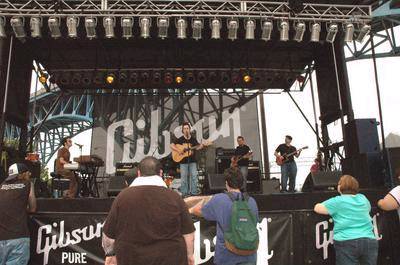
Brian at Cleveland (audio link) -
interview
www.cleveland.com/entertainment/webcast/clip.ssf?zzDoNotCount?/entertainment/webcast/cmj_fv.frame
my most humble thanks
i wish to thank everybody that
participated in the mcbirthday present this year...it is
truly amazing.... best one yet,
if the idea was to give back to me what i've given through
the songs...well i guess this next record better knock you
out ,to get me back even with the house.
This one really knocked me out,....tomorrow i go away to
england and i feel fully energized,
Like i got the strength of all of you with me...and that is
priceless...thank you and God bless you, you made me feel
love today....that is a rare and beautiful thing.
talk soon...
m
28th Updated my
MySpace.com page
(added "How
We Become" to
the jukebox
and a blog detailing
that song's
background). Check it
all out by clicking
here.
|
|